Alexander Hellene's Blog, page 5
January 30, 2021
Signal Boost: Tales to Make You Vomit, Vol. 1: She Was Asking For It by J. Manfred Weichsel
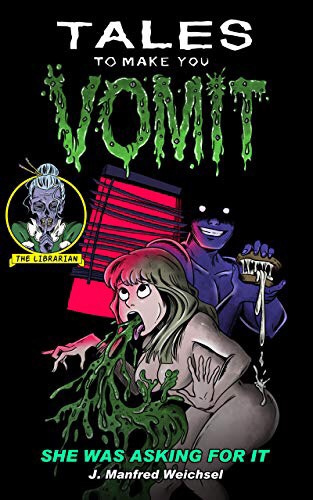
Where does J. come up with these ideas?
His girlfriend Emily has been kidnapped by a ghoul called the Librarian and hung upside down above a pit of bubbling lava. In order to win Emily back he must read a book from the Librarian’s collection, without vomiting.
This might sound like an easy task, but the Librarian doesn’t curate just any ordinary books. Each and every terrible tome in her bibliotheca of bile is so disgusting that nobody can read one without doing a Technicolor burp.
The book he must read is a repugnant little horror story about the revolting sex lives of failed Hollywood actors and actresses called She Was Asking for It. It’s a real page turner. It’s a stomach turner too!!!
He’d better have a strong stomach, because if even a single drop of bile escapes from between his lips while reading, his girlfriend will fall into the pit of lava beneath her and be burnt to a cinder.
Can you read this book without throwing up? Do you take the challenge?
If strange, funny, and unsettling stories are your thing, then J. is your guy. Snag it here.
Signal Boost: Tales to Make You Vomit, Vox. 1: She Was Asking For It by J. Manfred Weichsel

Where does J. come up with these ideas?
His girlfriend Emily has been kidnapped by a ghoul called the Librarian and hung upside down above a pit of bubbling lava. In order to win Emily back he must read a book from the Librarian’s collection, without vomiting.
This might sound like an easy task, but the Librarian doesn’t curate just any ordinary books. Each and every terrible tome in her bibliotheca of bile is so disgusting that nobody can read one without doing a Technicolor burp.
The book he must read is a repugnant little horror story about the revolting sex lives of failed Hollywood actors and actresses called She Was Asking for It. It’s a real page turner. It’s a stomach turner too!!!
He’d better have a strong stomach, because if even a single drop of bile escapes from between his lips while reading, his girlfriend will fall into the pit of lava beneath her and be burnt to a cinder.
Can you read this book without throwing up? Do you take the challenge?
If strange, funny, and unsettling stories are your thing, then J. is your guy. Snag it here.
January 27, 2021
Book Review: Fight Club by Chuck Palahniuk
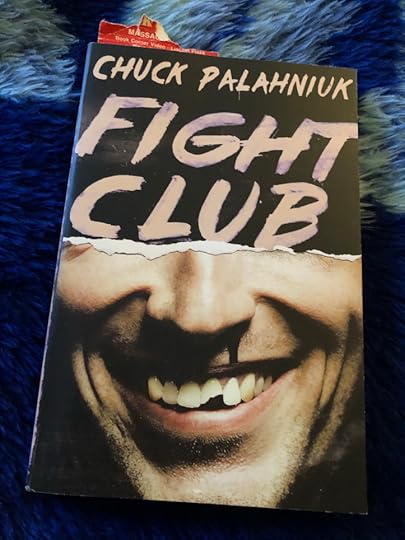
“The first rule of fight club is you do not talk about fight club. The second rule of fight club is . . .”
We all know this. It’s been fodder for memes both funny and lame since Fight Club‘s publication in 1996, and certainly since the 1999 movie adaptation.
What more can be said about Chuck Palahniuk’s legendary debut novel? There have been interpretations from the male perspective, the female perspective, the psychological perspective, the societal perspective, the gay pespective, and so on. Me, a humble author of sci-fi adventure stories, has precious little to add save for the fact that reading Fight Club in 2021 has a vasty different impact than the first time I read it back in 2002. Or saw the movie upon its release.
Let me tell you: Fight Club is a dangerous book because the themes are dangerous. While American Psycho, another controversial satire written by a gay man aimed at the dark, spiritually empty core of modern America viciously critized where we are as a society, it is not as dangerous as Fight Club. Because Fight Club offers suggestions about what people can do to push back. Specifically, men. And if there’s one thing the powers that be fear, it is large groups of regular, average, every day men banding together to do things.
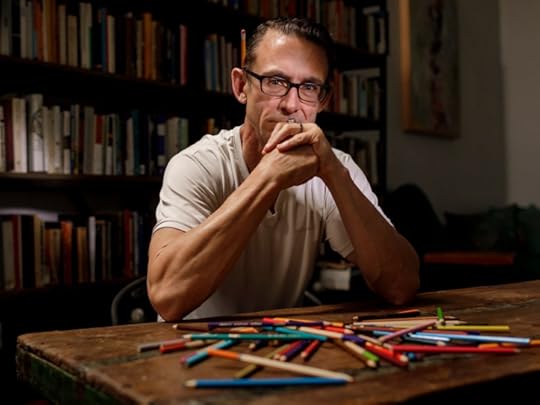 Chuck Palahniuk
Chuck PalahniukI’ll try to avoid spoilers, but this is a 25-year-old book and a 22-year-old-movie, so forgive me if some slip in like a single frame of pornography spliced into a children’s movie. Fight Club details the exploits of a miserable 30-year-old single white male living what looks to be a good life. Good by conventional metrics, that is: he has a well-paying desk job and a fancy apartment filled with a lot of trendy stuff. The problem is, he can’t sleep. And so he goes to cancer support groups and those of other horrible diseases to talk to people who seem to actually care what he has to say, and then cries. This allows him to sleep like a baby. It’s not a great life, but it’s life. He is existing, not living.
All of this changes when two things happen. One, a woman named Marla Singer appears at multiple groups with our narrator, and he knows that she, like him, is a faker. Two, he meets a young man named Tyler Durden who asks him to hit him as hard as he can.
This upends our narrator’s world. He and Tyler beat the hell out of each other and feel immense satisfaction. Other men are attracted to this, and soon they have created the very first fight club. Sure, your face looks like hamburger, but you build a camaraderie with these other men, and you feel like you can take on the world. The petty b.s. doesn’t matter. You feel, for the first time in your life, that you are capable. Alive.
But then, Tyler’s antics start getting more edgy. More dangerous. He tries to sabotage “polite” society by creating Project Mayhem. At first, they seem like pranksters. But then Tyler gets further emboldened, putting everybody’s lives in jeopardy through his army of malcontented young men.
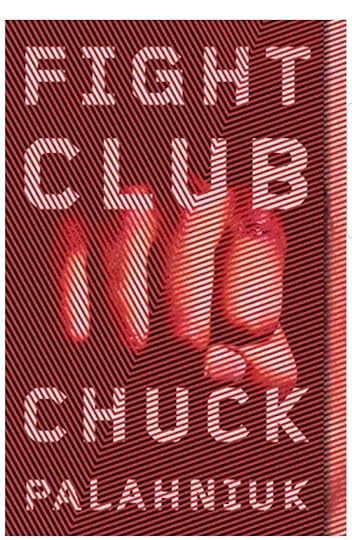
There’s a lot to this book. Palahniuk offers a whithering criticism of the crisis of modern masculinity that is more relevant in the 21st century than it was in the 20th. We are a generation of men raised by women and told by advertisers that we’d be rock stars and millionaires. Grow up, go to school, get a job, get married, have kids, repeat the cycle, and consume consume consume.
What’s the point? Why does it matter? Why does life seem like a never-ending menial chore? Why is there nothing more than “acquire stuff then die?” Why do we have to accept these things? Could things be better? How could they be better? How can we hasten this?
And the most important question: Who is to blame? Or what?
The answer may shock you. But if you’ve been paying attention, probably not. What will shock you is that you may very well find yourself agreeing with Tyler’s philosophy and methodology.
That is why Fight Club is dangerous. That is why you should read it now, even if you’ve already read it. Even if you’re over the age of 20 or 25. Even if you think there’s no way for you to fight back against the machine.
We need a little Project Mayhem in our lives.
Stylistically, Fight Club is lean and powerful. Palahniuk’s prose is incisive and his repetition of key phrases and Tyler’s little bon mots help link the temporally displaced narrative in such an effective way that you feel like you yourself are an insomniac floating in the air and observing your own life as though it belongs to someone else. Fight Club certainly approaches nihilism, and really doesn’t have any spiritual core save that “stuff happens because it happens and you have to make the best of it.” One wonders if Project Mayhem coupled with a Christian sense of hope and human dignity could help save our narrator from the never-ending spiral he finds himself in, but I do not think that spirituality is one of Palahniuk’s strong suits.
However, writing is. Fight Club is a short book. It is not particularly vulgar save for some bad language you definitely wouldn’t want your young kid to read. But it is dangerous. It’s about men, after all, so it should be dangerous.
My books are positive. Check them out here:
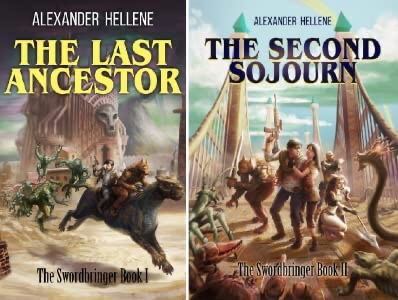
January 25, 2021
Interesting People, Vol. 5: Jon Mollison
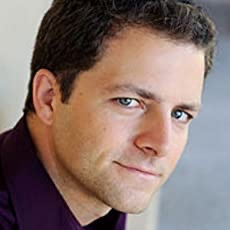
Jon Mollison is a prolific author of the self-styled pulp revolution. In the best spirit of his inspiration, Jon’s work transcends genre: he’s written sci-fi, post-apocalyptic dystopia, gritty noir, fantasy, superhero, sword-and-sandal . . . you name it, Jon’s taken it, shaken it up, and passed it through his own filter to craft some of the most fun adventure tales around.
It also helps that he’s a hell of a writer, with lean, evocative prose worthy of the pulp masters of yore.
I caught up with Jon online and he was gracious enough to answer some questions about his writing process and overall philosophy of where fiction is, where it’s going, and what it can be. My questions are in bold, and Jon’s answers are in normal type. Enjoy, and when you’re done why snag a few of Jon’s books?
Let’s start with a basic question: who are you and what is your writing modus operandi?
I’m a family man who works as a scientist by day and spends his evenings penning the sorts of tales that once appealed to hard nosed me, but which of late have fallen out of fashion. I tend to write in brief and focused bouts of creativity. To be frank, I don’t have the memory to be able to slowly grind away at a single work over months and months and month. To keep the action moving, I’ve got to keep myself invested, and that means blasting through the actual writing as fast as possible.
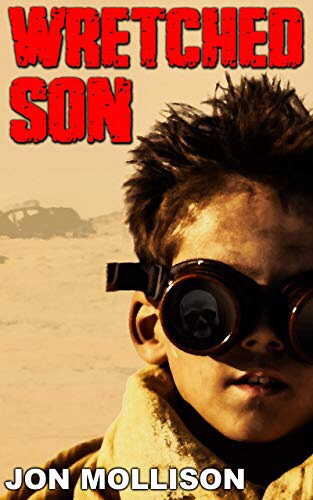
Given that philosophy of rapid writing, I suppose it’s not surprising that your stories tend to be fast-paced and action-focused. Does your process have anything to do with that aspect of your writing style?
Naturally. All things have an ebb and flow. Experiencing a novel as the creator leads to a very different experience compared to that of experiencing a novel as a reader. And yet, parallels exist. Condensing the writing process to the greatest extent possible helps me instinctively feel my way around the pacing of a story. Writers, like readers, need to allow themselves time to breath in between the whip-fast chase scenes and fight scenes. A long, slow pause for dialogue and negotiation and romance helps clear the palette and give me the energy and drive to move into the next pulse-pounding high-stakes scene.
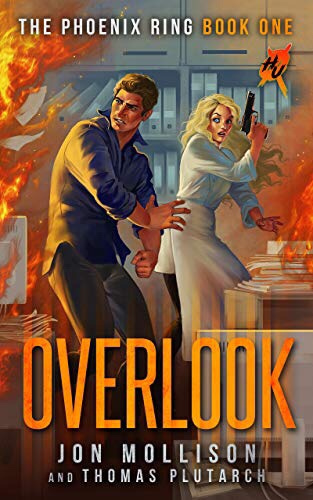
Another aspect of your writing I like is the dialogue. It always sounds real without being affected, and the characters tend to be very identifiable based on how they speak. What goes through your mind as you craft dialogue?
Conflict.
Care to elaborate?
The dirty little secret to writing good dialogue is that it’s just a different form of conflict. Sometimes that takes the form of a straight negotiation. Sometimes they are sparring with information. Even when they agree on the major principles of whatever it is they are talking about, language and communication are sloppy things. They may have difficulty even understanding that they agree on the major principles, because together they have to reach out across that gulf between their brains, and the tools we upright apes have developed to do so are so imperfect.
Any given scene presented to the audience should carry a sense of tension to it. It’s the three act structure in miniature. A set-up, rising tension, and then a resolution that moves the story into the next scene.
Alternatively, you can think of the people in the conversation as a united entity and apply one of the six types of conflict to the scene. The most obvious, “man versus himself” would be a straight-up negotiation. “Man versus society” might take the shape of something like the song “Baby It’s Cold Outside” where you have two people who both know what’s going to happen, but they have certain . . . forms and protocols that must be followed first.
“Man versus nature” might be two people trying to communicate across a raging river. Can they express themselves clearly enough to achieve their goals?
That’s what I mean by conflict.
Excellent breakdown! Conflict in dialogue keeps things moving forward and prevents boredom.
Another bit of detail: I noticed in your books that character names are both unique and meaningful or symbolic and fit the character very well. Or maybe it’s in my mind. Is this a conscious thing, or do you just go with what sounds cool/feels right?
For the important characters it’s a conscious effort. That’s as much to help me keep things straight as it is a favor to the reader. It’s also a way to help provide details for the reader while staying as economical with words as possible. One of my editors and a fine writer in his own right has drilled, “information is the death of narrative” into my head. Using an evocative name frees up verbiage better used to drive the action forward.
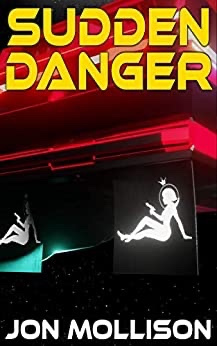
For minor characters, I do what all the best writers do: I use my friends’ names. Sometimes the names get tweaked to create a more subtle Easter egg for clever readers. You have appeared in a couple of my stories, for instance, but don’t ask me which ones. At fifteen books and counting, even I’m losing track!
Hah! I’ll have to read more then!
Let’s shift to action scenes. Your fights and chases are very brutal and bracing, yet never feel too short—or too long. What are some of your considerations when crafting action sequences?
The victory conditions for both parties. Violence for the sake of violence results in weak storytelling. There should always be a damsel to fight over, or one party should be looking to get out of the fight before taking too much damage.
So basically a deeper conflict beyond the actual physical conflict?
The brutality comes from my own experience in the boxing ring. Here we circle back around to information being the death of narrative. When you’re fighting, you’re running on pure instinct. You don’t have time to take in as much information as you’d like. It’s just impressions and motion and a rush of adrenaline with brief flashes of pain and weariness and never enough air in your lungs. I try to put the reader into the action by flooding him with that short burst of too much too fast.
Deeper conflict is what it’s all about. It’s the same thing that we were talking about with conversations and dialog. Frodo throwing a ring in a volcano means nothing with all of that deeper subtext about power and friendship and oathbreaking and oathkeeping.
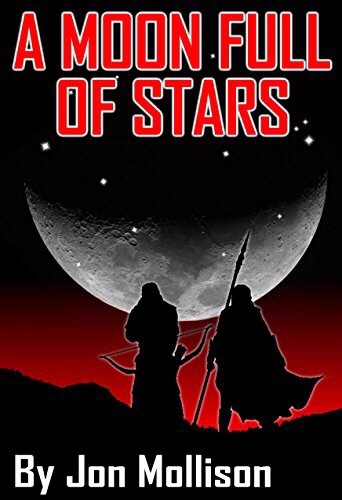
Given your philosophy of “less is more” when it comes to info dumping—and I’m assuming exposition in general—who are some of your main literary influences who’ve informed this writing approach? And who are some writers you love even though you don’t write like them?
Taking the last one first, Jack Vance always amazes me with his ability to spend two pages itemizing the things on a wizard’s shelf and keep things interesting. His mastery of language is really something else. My own influences run toward the old masters like Robert E. Howard – that guy paints massive tableaus with two short sentences. Poets the both of them. On a more contemporary note, I consciously try to ape Glen Cook. He has a knack for creating narrative by NOT saying things. It’s hard to explain, but he uses the unreliable narrator to create drama that you only notice in retrospect. He also has a talent for not saying the things that go without saying. Little unimportant details that get left out until they become important, and by the time he spells them out explicitly, you realize that you knew them all the time.
Very cool. I definitely get a Howard vibe from your writing, and not just in Barbarian Emperor.
One interesting thing about your books is that you write in a variety of genres. Neon Harvest is very noir, the aforementioned Barbarian Emperor is Conan-meets-Ancient Rome intensity, while the Sudden series reminds me of Star Trek and Wing Commander with a Douglas Adams vibe. Plus, you write fantasy and superhero novels. How do you make that mental switch when changing styles and genres, or do you?
Mimicry. It’s not a conscious thing . . .
Let me walk that back a bit. You know how, when you spend time around people with a specific accent you start to adopt it in small ways yourself? Often without even realizing it. At least, that happens to me. The same thing happens when I read. If I read a lot of Howard, it leads to my adopting a more Howardian turn of phrase. In little and subtle ways, I think. I use that to my advantage and try to read a lot of whatever it is I’m reaching toward. For the Sudden series, I read a lot of cheeky sci-fi and space opera. For Barbarian Emperor I plowed through a lot of Conan.
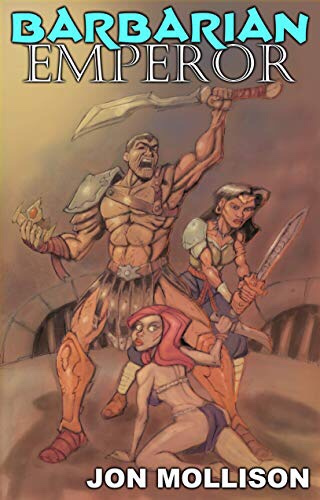
Given that, is it still challenging writing in multiple genres?
Not at all. Genres are just costumes. My stories all touch on deeper things than swords and lazer swords and magic swords. Yeah, there are some logistical challenges that make the genres feel different for the reader, but E.Z. Sudden could have been a pirate on the Spanish Main and the central tension of a lost princess rescued by a smuggler would have remained unchanged.
Deeper things are definitely present in all your stories. They’re all wrapped around a very traditional and some might say wholesome moral and emotional core. Where does that come from?
That comes from a place of starvation. Our culture turned away from the traditional and the wholesome a long time ago. Such things are sneered at by the tastemakers as gauche and outdated. As a result the stories pumped out by the coastal snobs reflect a broken and overly simplistic model of the world. Digging down into the foundations of western civilization one can find whole untapped veins of rich cultural ore – mysteries and questions that go far beyond the surface level morality plays spoon fed audiences by LA and NYC.
My children caught onto the vapid nature of kid shows early. Through the nineties and oughts, every film was build on a foundations of, “You just have to believe in yourself.” And that surface level morality doesn’t ever stop. Hollywood bought into the One Hero Journey to Rule Them All, and tacked that one-note inner journey onto all sorts of films.
Sometimes it’s not enough. Sometimes you have to believe in something deeper. Sometimes you have to look outside of yourself. And I like to think that most of my works encourage the reader to stop turning inward so much and instead look outward to see how much of this universe is built for them, to strengthen and support them, if they would just reach out and accept it.
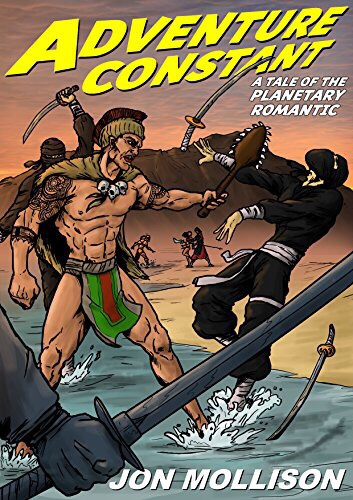
That encouraging nature, that desire for something greater and better, shows up in a lot of your romance plots as well. I have Neon Harvest on the mind, since I just read that, but Virginia was running towards something as much as she was running away.
Is that how you tend to write romances? Are there other criteria you create in your romantic subplots?
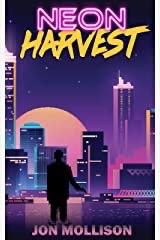
We are all islands at the center of our own private ocean. Because of the nature of our existence, we are awash in a wealth of information filtered through our own experience. Because of our isolation, we often find ourselves at odds with the rest of the world. They can only operate from a very limited understanding of our position, and so we find ourselves at odds even those whose judgement we trust the most. The rest of the world can only gain some partial appreciation for our choices–whether it be our choice in which car to drive or career to pursue or whom to marry. The latter, man and woman joined together as one, provides for the nearest we discrete individuals can ever hope to come to a true understanding of another.
So where most romances begin and end with “we have to make society understand our love for each other”–and that’s a fine obstacle to overcome, one rich with drama–I find myself far more interested in the smaller stakes of two people who have to first discover their love, and then begin the far more difficult task of making the other understand the depth of their feeling. In this case, the former obstacle really does become an opportunity to resolve the latter. The societal disapproval becomes a mechanism for demonstrating that the love interest takes primacy over the wishes of anyone and everyone else.
Getting back to the idea of starvation, if we as a culture—America, the West, whatever you want to call it—are starved for the things that used to sustain us, where do writers come in? Where do you come in?
Maybe it’s more precise to say we are malnourished. Our culture is like our food–there’s so much of it out there it’s possible to gorge yourself into a torpid coma. Most people just consume what is dumped on the plate in front of them. The stuff that nourishes the soul tastes better, but you have to refine your palette to appreciate it fully. And you have to actively seek out the healthy and challenging stuff. To really torture the metaphor here, I consider myself something of a short order cook style of writer. I offer readers a filling meal and turn it out quick. Might not be the most sophisticated fare, but you’ll never go away unsatisfied.
To continue with the metaphor, you have to go to people where they are, and more people eat at diners than five-star restaurants . . . and nothing says diners can’t be damn good.
One last question before I let you go: where do you see the future of sci-fi/fantasy/fiction in general?
“The beatings will continue until the morale improves,” shall be the order of the day. We are definitely going to see the continued weaponization of fiction by the moneyed interests. Corporate publishing might be big and slow and unable to adapt to increasingly erratic markets and macro-scale financial changes, but they have a lot of inertia behind them. And fiction is such a powerful tool to shape minds and culture, they will not stop dumping massive amounts of money down the black hole of woke literature. It will continue to serve as a pipeline for them, too–bringing converts to their woke parody of a religion–but over the last half decade a lot of people have been forced to confront the reality of the Corporate-Government alliance.
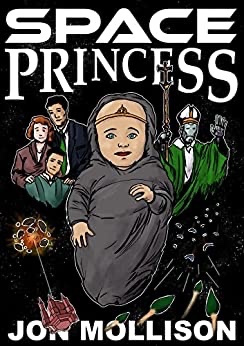
The public might not fully understand the deeper trends and currents driving the drop in quality of their favorite media, but they know something is rotten in the state of entertainment. The jaded and bored public will come around in increasing numbers to find those independent writers and producers, the mammals still scurrying around the feet of the dinosaur publishers finding niches and exploitable new habitats. Those independents are the new radical fringe, and they are the ones experimenting with new methods of delivery, new means of telling stories, and new ways of reaching audiences.
In a way, its for the best. Those who just want to suck from the sewage pumped out by corporate media can drink their fill. Easy, cheap, fast, and abundant. On the other hand, the more rugged and intellectual readers have the opportunity to find the independents who have what they want, to find the experiments that work, and to share their finds with like minded explorers. The latter kind of readers are my kind of people, and I’m not alone. There are a host of authors thoroughly enjoying the challenge and effort of serving their needs. Storytelling is as old as language, and storytellers adapting to the needs and wishes of their audience are almost as old. Whatever happens, authors like me and my gracious host will always be around, ready to fill in the gaps between what moneyed interests want to provide and what good people want to read.
Jon’s books are available here!
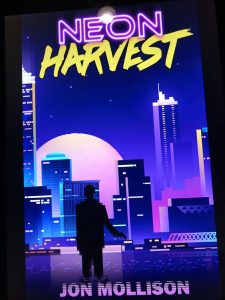
January 22, 2021
The Nature of the Game
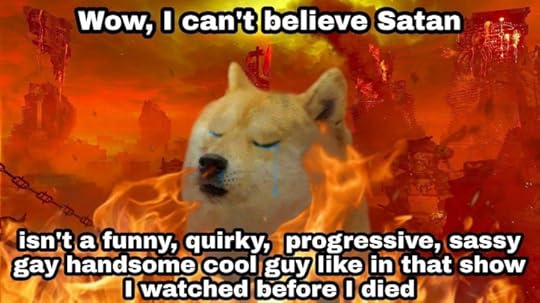
This meme is perfect. This meme shows what we’re up against, “we” being anyone who doesn’t worship the devil, either knowingly or unknowingly.
Pop culture, and culture generally, do matter. Maybe not in the raw power sense, and often one must be in power for the culture they create to have any mass impact, but it’s inescapable that culture is how a society promulgates new values and reinforces the current ones, those obviously being defined as “those which keep the dominant powers in power.”
That sounds harsh, but that’s how it is. If we’re lucky enough to have good leaders, the values in our culture are likewise good. If we have venal, corrupt, Godless, power-hungry freaks in power like we’ve had for the better part of 70 years, the entertainment wing of government pumps out stuff that reflects that. And since religion doesn’t matter anymore in America, pop culture has become the religion.
So in the micro level, however, are you going to lead people astray?
If you really want to be subversive, put positive messages focused on the good, the beautiful, and the true in whatever it is you create. That doesn’t mean it has to be bland or boring. Have all the blood and guts and sex you want. The question is: to what, or whose, end does it serve?
Top-rated sci-fi that will leave you feeling pumped and not in a state of despair:

January 20, 2021
What If They’re Right?
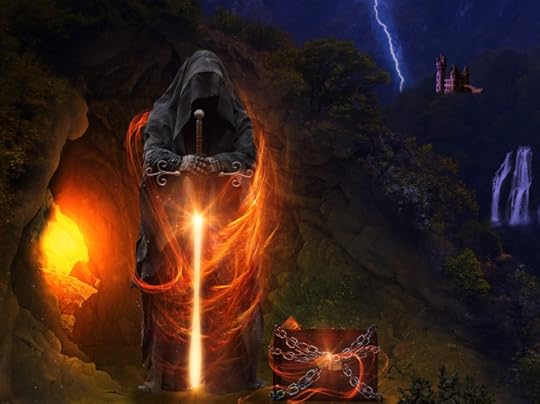
There’s a school of thought that self-publishing is embarrassing and opened the floodgates to a whole bunch of shoddy work that would never have seen the light of day if the gatekeepers were properly gatekeeping everything, and the unwashed and unschooled masses did not have access to this democritizing technology.
And that’s all true. Most of it. I differ at the typical smug go-to insult, which is the “embarrassing” part.
After all, there is a lot of embarrassing ficton that is published by the gatekeepers, solely on the basis of the story’s premises (are there nonbinary WOC as the protagonists? And so on–I’m not kidding here; these are the things traditional sci-fi and fantasy publishing thinks are more important than skill and story) or the identity of the author. Much of what is allowed by the gatekeepers certainly does not have artistic quality as the highest standard for allowing.
This isn’t just me bloviating here. Book sales are awful in American. Nobody reads, certainly not enough for the book industry to be expanding, which it’s not, and not contracting, which it is. But as we all know, as with most industries, particularly in entertainment, it’s not about making money. It’s about evangelizing the new secular religion, shaping minds and attitudes, and yes, propagandizing. Artistic quality as a considertion is farther down on the totem pole.
Yet in the spirit of self-reflection, I can’t help but wonder “what if that criticism is right?” What if I’m just being ridiculous and vain by self-publishing? After all, I don’t have the stamp of legitimacy from my peers, or a contract or an advance. I have some nice reviews on Amazon–generally and what some might call overwhelmingly positive–and they’re selling decently well. But I’m still a nobody in this field and any impact I’ve made has been very, very tiny.
So it’s quite quoxitic. And maybe nobody in the traditional publishing world would publish any of my novels, both because of their contnent and becasue of my identity. I am a member of an unfavored and many may say despised group and an adherent to a despised religion (despite it now being Totally Awesome again because we have the Most Catholic President Ever) writing positive sci-fi with Christian themes, so I’d never get my foot in the door no matter how good my writing is.
That’s fine. I kind of enjoy being the underdog. It keeps me hungry, and I’m not embarrassed about anything I’ve published. However, a part of me will always think about this.
You can check out some of my books here and let me know what you think:
January 18, 2021
Enemy Territory
[image error]
Friend, sci-fi author Travis Corcoran recently made a series of good points about why we should be optimistic about the future. Read it here.
So who is “we”? “We” are people who value truth, honesty, skill, compassion, objective reality, dignity, equal application of the law, justice, and mercy.
In other words, the enemies of those in charge.
Travis states what I’ve been feeling for a long time but couldn’t quite articulate: I AM the enemy of the powers that be.
The woke-tards are right when they say there is no place for people like me in New America v3.0.
Great! New America v3.0 is a rotten place run by rotten people, and I want to have nothing to do with it.
This land is occupied land, physically and spiritually. My “tribe,” as it were, exists all over the country and all over the world. It it’s not a geographic society . . . yet. Maybe it’ll never be. I don’t know. All I know is that this geographic society is a corrupt, mean, and stupid place I am more than happy to be out-of-step with.
I’m living in enemy territory. You probably are, too.
When 2 + 2 = 5 . . . when laws are applied unequally based upon who those in charge find useful to their cause . . . when our school and university systems churn out people who are dumber after having been through them . . . when standards are lowered in every institution so certain people won’t feel bad about themselves . . . when narcissism reigns supreme . . . when we can’t go back to the moon because we’re too stupid . . . when every institution is fundamentally incapable of telling the truth about anything, no matter how small . . . when even our math and science are suspect . . . when our buildings are ugly . . . when we can’t produce any great art . . . where perversion is celebrated . . . where sin is decoupled from guilt and you’re the weird one for being religious . . .
. . . yeah, count me out.
I can’t wait for this festering pustule of a ruling class to topple and something great and new to take its place.
Never before have I been so happy to be the mortal enemy to the worst people alive.
Aspirational sci-fi for a world that wants you to despair.
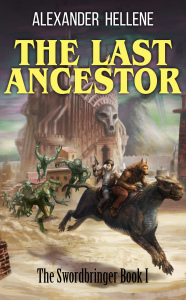
January 16, 2021
Law School Mindset

Let’s talk about risk for a bit.
As lawyers are trained to never take risks, and to always see the downside of everything. There’s an old saw that you risk nothing by telling somebody “No,” but telling them “Yes,” opens yourself up to potential legal liability. And nobody wants that.
No-men are safer than yes-man, and often times more preferable. And I understand the yes-man trap, because you never want somebody who uncritically agrees with everything you say advising you, but there comes a point where this mentality can bleed into your every day life and cause problems.
However, for all the people who never went to law school, what’s your excuse?
I’m going to bring up Elon Musk not because I am a super fan, but because he’s the real world equivalent of Tony Stark. That guy is a visionary, and the amazing thing about him is that he actually gets his crazy stuff done.
Now, think about anytime you’ve had an idea that seems crazy or far-fetched to some. How many sit around pointing out obvious problems with it, as though you’ve never thought of them yourself? A lot probably. Now think about how many people will reply to your idea with potential solutions, or other follow on ideas that are just as inspiring?
Probably none.
We need to get out of this lawyer mentality. Not just in our personal lives, but as a culture.
As an ongoing part of my “Lawyers Ruin Everything” hypothesis, the fear of being sued strangles many new ideas in the crib. But what about your life? Isn’t it aggravating that sometimes every idea you have is met with reasons why it won’t work?
Yeah, that can be annoying. But what I find far, far worse is when I find myself doing that to other people.
At the end of the day, a lot of people don’t want to be responsible for the consequences of a decision. And that’s a problem. Is it any wonder that you don’t see any Elon Musk types in the legal profession?
I’m no visionary, but deciding to write a book about Rush fans that required intensive research and interviewing was pretty nuts. Luckily, I didn’t listen to myself telling myself no! Buy it here!
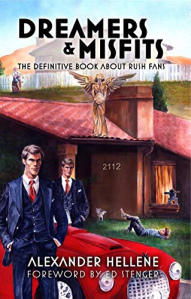
January 14, 2021
The System Isn’t Always to Blame
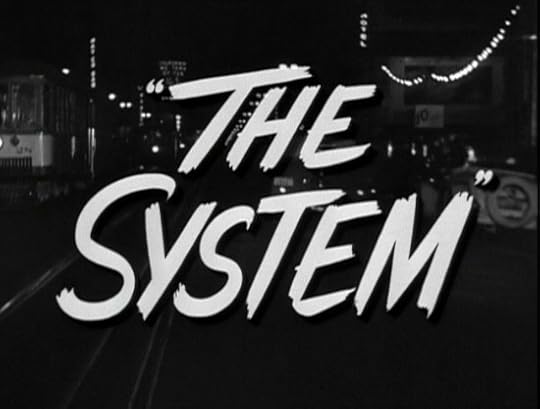 In an effort to understand things that I may be getting wrong, I am more than happy to engage in civil discussions with people who have a differing viewpoint. To wit: recently I was passed this article, which while it contained some interesting criticism of police practices, had this paragraph defining the term “systemic racism” in a way that is absolutely bonkers:
In an effort to understand things that I may be getting wrong, I am more than happy to engage in civil discussions with people who have a differing viewpoint. To wit: recently I was passed this article, which while it contained some interesting criticism of police practices, had this paragraph defining the term “systemic racism” in a way that is absolutely bonkers:
Of particular concern to some on the right is the term “systemic racism,” often wrongly interpreted as an accusation that everyone in the system is racist. In fact, systemic racism means almost the opposite. It means that we have systems and institutions that produce racially disparate outcomes, regardless of the intentions of the people who work within them.
This is nuts! No matter the intention of the people involved, what matters are the outcomes? This isn’t a concern “some on the right” have, it’s a concern to anybody with a shred of both logic and a sense of fairness.
Think about it: this definition can be, and is, twisted to accuse people of the worst thing in the world anybody in 21st century America can be: racist. Leaving aside the issue of police shootings and incarceration rates, let’s play this out.
By this insidious definition, America’s justice system is systemically racist because blacks are disproportionally incarcerated. The answer is never, of course, to look at whether there is a reason for this besides the theory that the criminal justice system is skewed against them. Maybe it is! But maybe there are other explanations for this.
This raises a corollary point, which is that hard statistics that show certain things are dismissed as somehow faulty or doctored by people who don’t personally like the outcome they point to. I will leave it at that because (a) this post isn’t about the criminal justice system per se, and (b) if you think I want to touch this issue with a ten-foot pole, you’re dreaming.
Back to the issue at hand: the answer always seems to be “Tweak the system to ensure that the outcome reflects the proportion of people that reflects the demographics of society at large.” Leaving aside the fact that this issue only matters in a multicultural, multiethnic, multiracial, multireligious, multilingual non-society like ours, would this mean that the criminal justice system is actually incarcerating actual criminals–the ostensible point of having a criminal justice system–or does the system just exist to make certain groups feel better about themselves by not being disproportionately represented?
This is not a rhetorical question. It is painfully obvious that the latter answer is true, at least for outcomes that are generally agreed to be negative, e.g., being in jail. Oh, but wait, that’s negative outcomes only for certain groups. If other groups are disproportionally, I don’t know, committing suicide and dying other deaths of despair, that’s okay. For reasons.
Nobody wants to talk about stuff like this. Nobody wants to admit that there may be underlying reasons for certain outcomes that have nothing to do with racism. Because this wacko definition of “systemic racism” takes inteiton out of the equation.
At the risk of sounding like a broken record, this definition is utterly mad, especially since the consequences of being branded with the “R” word (if you are of a certain chromatic disposition, that is) are so brutal.
Anyway, let’s think of other contexts this definition can be applied to:
Does this mean that the NBA, the MLB, the NFL are systemically racist?Does this mean that universities, particularly the top ones like the Ivy Leagues, are racist?Does this mean that the ownership of media companies or big tech is racist?Does this mean that the ownership of top Wall Street financial firms is racist?Does this mean that banks are racist?Does this mean that public schools are racsit?Conventional mainstream wisdom says “No” for the first. It’s a meritocracy! Clearly! Why? The dirty secret nobody wants to talk about is because the preferred groups are overrepresented. It also says “No” for the third, fourth, and fifth institutions and systems on our list. And most people are rightfully fine with that. Some groups are better at certain things than others. However, this doesn’t extend to the ownership of teams in these sports leagues. No, that is racist.
Here’s the kicker, the real taboo, the third rail: this idea that certain groups are seemingly better at certain things than others also means that some groups may be worse at certain things than others, or less-harshly, not as good. This is why only one particular group at top universities is singled out as being unfairly overrepresented and actively discriminated against despite being a bigger proportion of the American population than another group overrepresented at top universities that nobody seems to take issue with.
The answer, naturally, is to lower standards. It’s the American way! This has had outcomes that are predictable to anybody who is paying attention–minority wars are real.
Lowering standards never ends well, whether it’s academic standards or physical standards or behavioral standards.
No alternative explanations are ever given for this, and logic is tortured and abused by people who graduated from many of these top universities to convince you that “systemic racism”–that is, the outcome itself–is the reason, and that the outcome itself is prima facie evidence of the racism inherent in the system.
Back to the criminal justice system: maybe there are other systems at play producing these negative outcomes other than the criminal justice system. Who knows? We’re not allowed to talk about them. But the prevailing theory would have us believe that innocent members of certain groups are endlessly railroaded by the system. For reasons.
Of course, this gets extended to any -ism. Not enough female engineers or Navy Seals? Clearly these systems are sexist!
I’m continually shocked by my capacity to continually be shocked, but I can’t help myself: it’s astonishing how so many smart and well-meaning people actually buy this junk.
Outcomes are deemed “good” if the ruling class decrees it so.
Here is the most depressing part of this all: things that might actually help solve whatever problems we’re trying to solve never get addressed. Is this just to spare certain groups’ feelings? Is this just to assuage the weird guilt on the part of those who have taken it upon themselves to be society’s saviors?
I don’t know. The only thing I do know is that problems get worse and worse, and problems are made worse, by completely bizarre theories and explanations that are continually shoved down our throats like the one I’ve highlighted in this post.
If a system is producing sub-optimal outcomes, the system very well may be at fault. But maybe it’s not. Maybe there are alternate explanations. We do ourselves no favor as a society by ignoring them.
Don’t ignore my books. The only thing they are systemic is systemically awesome.
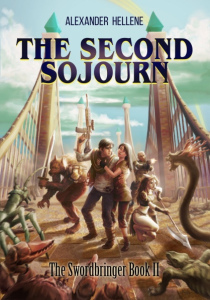
January 12, 2021
New Piece at American Spectator: “Remembering Rush Legend Neil Peart”

My newest article at American Spectator is online, in which I take a moment during a crazy time to commemorate an individual who had an overwhelmingly–I argue solely–positive impact on our culture:
The world can be a harsh place. People die every second of every minute of the day, many in unjust, unfair, and senseless ways. The COVID-19 pandemic of 2020 and beyond has particularly stricken the elderly and those already immunocompromised. Into this daily death count often come news of celebrity passings. Most of these are logged into the “Oh, that’s too bad, I really liked that person in this movie or that song” category, and then we move on with our lives. Too much goes on in the world to invest the emotional energy required to mourn or really care.
And then there are some celebrities whose deaths, for whatever reason, really affect you even though you never knew the person and the celebrity in question had no clue that you existed.
This was the case for me when Neil Peart, drummer and lyricist of the legendary Canadian progressive rock band Rush, died on January 7 of last year from a form of brain cancer called glioblastoma. Peart, a famously private individual, had told nobody outside of his family and a close circle of friends that he was sick, so his death sent shock waves throughout the rock ’n’ roll community. Rush had retired from touring after its triumphant 40th anniversary tour in 2015, mainly because neither Peart (shoulder pain) nor guitarist Alex Lifeson (degenerative arthritis) thought they could physically play at the high level of musicianship they demanded of themselves any longer — though listening to the R40 live album one would never know. But surely there would be other albums like 2012’s excellent Clockwork Angels, or maybe a few one-off shows here or there.
And then Peart was gone, and Rush fans the world over felt his loss more than they arguably ought to have, given that he was a celebrity that the overwhelming majority knew only through his music and lyrics. At least, I did. Enough to write a book about it.
In a very strange and unsettling time in American history, it might seem strange to focus on the one-year anniversary of the death of a rock musician. But Neil Peart, and Rush generally, was a special animal in the world of rock music: he provides an unabashedly positive example of the effects pop culture can have on people.
Read the whole thing here.
Dreamers & Misfits is available here:



